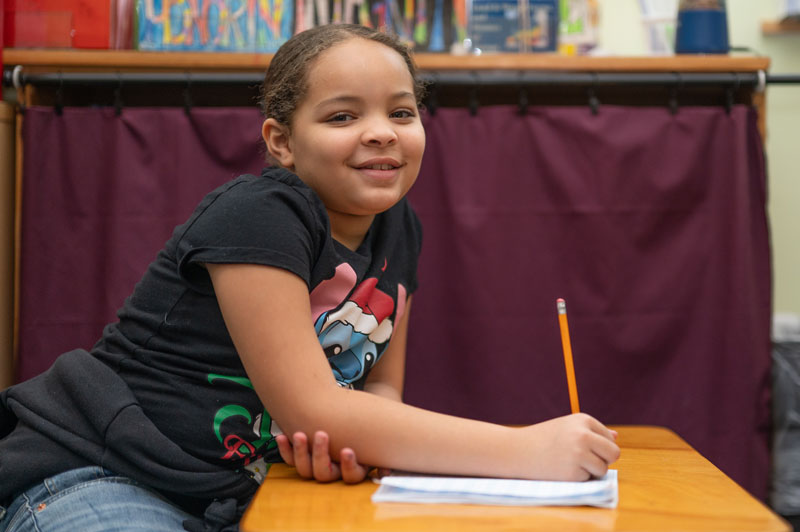Practical Life in the 21st Century: Building Independence for Elementary Children

Practical Life has always been at the heart of Montessori education. In the early years, children practice skills like pouring water, tying shoes, and sweeping—activities that strengthen concentration, coordination, and independence.
As children grow into the elementary years, Practical Life expands into the wider world. The foundation is the same: give children meaningful responsibilities that help them contribute to their family and community while preparing them for real-life situations. In today’s world, many of these skills also include navigating technology and modern safety practices.
Here are a few ideas for Practical Life activities at home with your 1st–3rd grader:
1. Memorizing important information.
Children at this age are capable of memorizing their home address, the names of their caregivers, and at least one or two cell phone numbers. This is not only empowering, but also a matter of safety. Practice together by turning it into a game—say a line of the address, and have your child complete it, or write it down in fun ways until it sticks.
2. Managing technology responsibly.
Although Montessori emphasizes hands-on work and human connection, technology is part of our daily lives. Children can take responsibility for charging devices they use (such as a tablet for reading or communicating with family). They can also learn to keep cords tidy and organized—winding them carefully, labeling them, or creating a designated storage basket. These small habits build respect for shared tools and an understanding that digital devices are not disposable.
3. Household tasks for today’s world.
Children can be responsible for breaking down Amazon or delivery boxes and sorting packaging for recycling. They might also track incoming packages, check them off a family list, and help carry items inside. These tasks give them a sense of order, while also teaching responsibility in a world where deliveries are common.
4. Building early financial literacy.
Elementary-aged children love the idea of being trusted with money. You might invite them to:
- Help compare prices while shopping online or in person.
- Keep a small budget for a family outing (snacks at the park, or choosing items within a set amount).
- Place an online order with guidance, practicing how to read prices, tally totals, and notice shipping costs.
- Save allowance or gift money in jars or a child-friendly app to see how money grows and is spent.
Practical Life in the 21st century continues the timeless Montessori goal: raising confident, capable children who see themselves as contributing members of their community. When families invite children to take on meaningful responsibilities—whether learning a phone number, neatly winding a charging cord, recycling boxes, or budgeting for a treat—they are offering more than a skill. They are offering the gift of independence.










